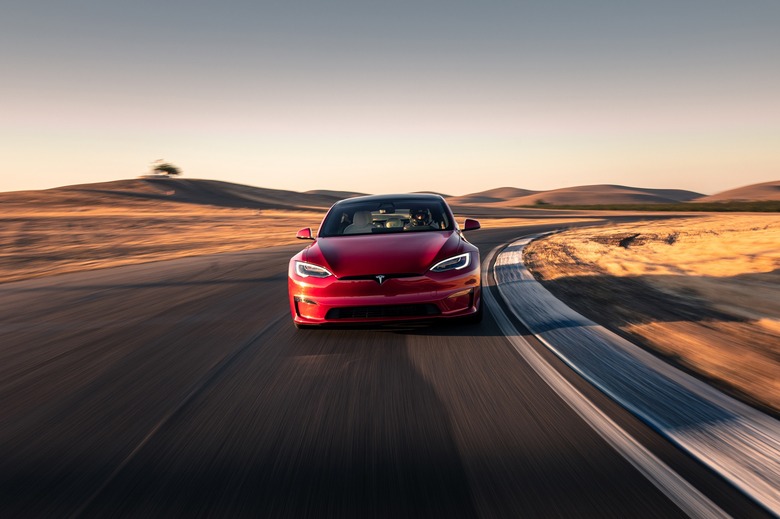Licensing Its Self-Driving Technology To Other Automakers Could Be Tesla's Next Big Move
With Tesla opening up its Supercharger network to other automakers, the natural next step would be to open up its software.
Tesla held its Q2 earnings call today, and during the call, Tesla CEO Elon Musk said that one of the company's next moves could be to license its self-driving technology to other electric automakers. In fact, the CEO said that they were already in discussions to do just that with at least one other company.
In comments caught by The Verge, Musk said: "We're not trying to keep this to ourselves. We're more than happy to license it to others." The comments echo a tweet from the CEO last month in which he compared licensing Full Self-Driving to opening up the company's Supercharger network to non-Tesla EVs.
Tesla aspires to be as helpful as possible to other car companies.
We made all our patents freely available several years ago.
Now, we are enabling other companies to use our Supercharger network.
Also happy to license Autopilot/FSD or other Tesla technology.
— Elon Musk (@elonmusk) June 5, 2023
In order to advance its FSD Beta even further, Tesla has also announced that it has started production of its Dojo supercomputer, which will be used to train its autonomous fleet of vehicles. In its earnings report, the company said that "extremely large real-world dataset, neural net training, vehicle hardware, and vehicle software" would all be needed to solve autonomy. The Dojo supercomputer, which is claimed to be the first supercomputer capable of an exaflop, will assist the company with neural net training.
The company's earnings call also touched on the Cybertruck, which Musk confirmed will start production this year, and the company's earnings (obviously), which outperformed Wall Street expectations in revenue — largely fueled by the company's recent price cuts with its vehicles. That did, however, lead to smaller margins, causing the stock to drop slightly after the results were made public.
If you really want to get into it, feel free to watch the full Q2 2023 earnings call below:
While licensing its self-driving technology could be a future source of revenue for Tesla, it is currently cashing in big with other automakers who are adopting the company's NACS (North American Charging Standard) connector and gaining access to its Supercharger network. Tesla stands to make a fortune once non-Tesla EVs start to use the network, and the company begins to take a cut of that revenue.
Just today, Nissan became the first Japanese automaker to adopt the NACS charger and gain access to the Supercharger network. Most of the large automakers in North America, including Ford and General Motors, have already signed on to adopt NACS in future EVS starting in 2025 and gain access to the Supercharger network via adapters starting in 2024. Anyone who is sticking with CCS seems to be fighting a losing battle at this point.
Between the network and its software, the EV market is really Tesla's to lose at this point.
